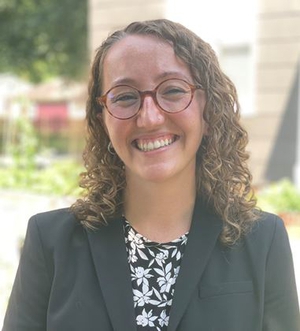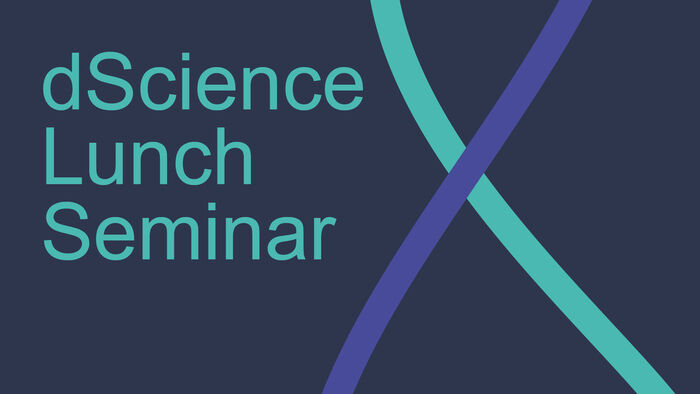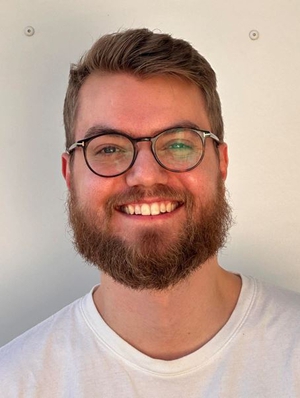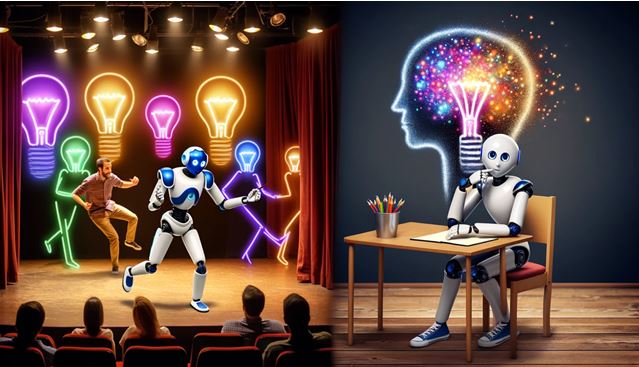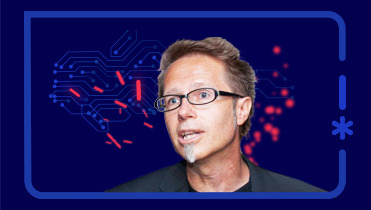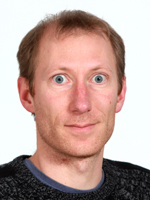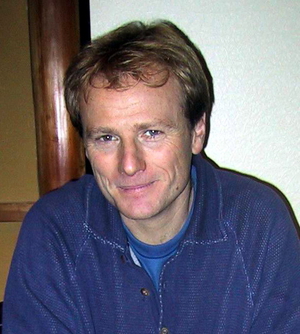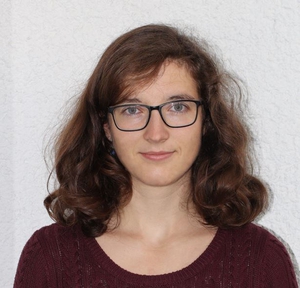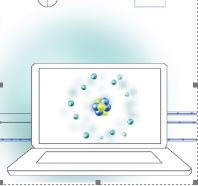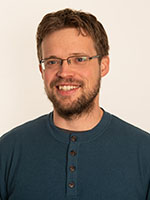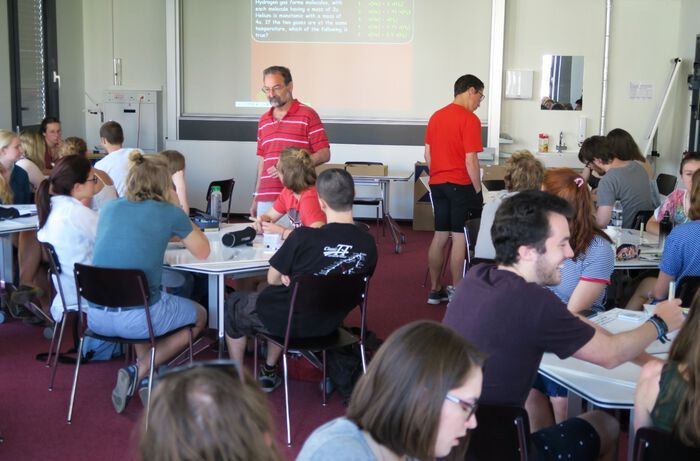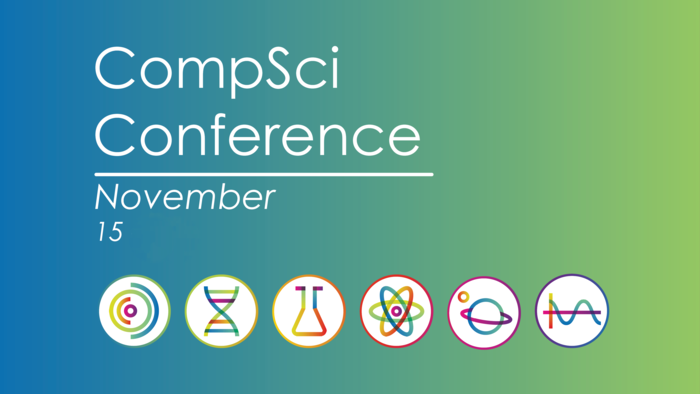Tidligere arrangementer
The University of Minnesota – Twin Cities Physics Department is restructuring its upper-level curriculum to integrate computation throughout the physics major courses. While this change has the potential to ensure that all students learn context-specific computing, it may also impact the ways students think of themselves as ‘physics people’ and of physics computational literacy.
Welcome to our weekly lunch seminar held in the dScience lounge with Fahimeh Najafi.
Our students take a programming course in their first semester, where they are taught the basics of syntax and coding strategy. They then go on to use programming in most of their other courses, gaining experience as they use it in varied and increasingly sophisticated ways. But we don’t really have specific goals, strategies or measurements in place for how students should develop their programming skills past the first year, despite programming being essential in physics research and industry.
I’m therefore researching how computational physics masters students develop their skills in programming, using interview data and student code.
Welcome to our weekly lunch seminar held in the dScience lounge, with PhD Candidate Hannes Kneiding.
Markus Fleten Kreutzer, Jonas Timmann Mjaaland and Halvor Tyseng:
Qualitative analysis is a cornerstone of social science research, used in fields as diverse as education research, sociology, history, and business. Traditional qualitative analysis, however, is time consuming, labor intensive, and difficult to both scale and replicate. To tackle these issues, we have devised a fast, replicable, and scalable technique for deductive, qualitative research on text-data, by utilizing novel advances in machine learning and artificial intelligence.
Tor Ole Bigton Odden:
Over the last year and a half, generative AI tools like ChatGPT have gone from niche research projects in the field of Natural Language Processing to tools that have upended whole sectors like education, software development, social science, and more.
This rapid development is partially due to the fact that these tools have, through gradual updates, developed capabilities that could not have been predicted in November 2022, like the ability to reason spatially, mathematically, and visually. Many users reasonably wonder how, and more importantly why, they work.
Michael Doser (CERN): Seminar on Quantum Detectors for high energy physics by Michael Doser (CERN) on the 5th of March at 14.00
Joakim Bergli (Physics, UiO): Synchronization in two-level quantum systems
Joakim Bergli (Physics, UiO): Introduction to quantum error correction
Henning Vinjusveen Myhrehagen:
As of 2023, Norway has implemented a new science curriculum which explicitly includes programming as a part of education in science and mathematics. However, the curriculum documents do not provide clear-cut guidelines on how and to what extent programming should be used for science learning, and it is also unclear how far teachers have come with their implementation of programming in education.
To understand the effects of the new curriculum, we have surveyed Norwegian upper secondary science teachers to find out what affordances they see with the use of programming, and what challenges they are experiencing.
Morten Hjorth-Jensen (Physics, UiO): Parametric Matrix Models and Machine Learning
Håkon Kristiansen (Hyllerås, UiO):Time-dependent many-body theories
Jana Legerská:
Quantum physics is becoming increasingly important as the background knowledge for the emerging quantum technologies. In the recent years, the role of quantum physics in the high school curriculum has been emphasized, too. However, the curricular documents cannot bring a complete picture of incorporating quantum physics into the school reality.
In this talk, I will present a pilot study on describing the current state of teaching quantum physics at the high schools in the Czech Republic.
I will explore what topics are typically covered in what time constraints, what are teachers' main goals in their quantum physics teaching, and how teachers feel about introducing students to quantum physics.
Stian Dysthe Bilek (Physics, UiO): Parameterized Optimization of Quantum Circuits
Justin Wells (SNM, UiO): Observing and understanding electron-boson interactions in solids
Simon Cooil (SNM, UiO): Atomically Sharp and High-Density Sb Doping in Si for use in Quantum Devices
Geir Kjetil Sandve:
Large language models (LLMs) are now able to intelligently complement a human programmer (tools like git copilot) or even to write programming code from scratch based on a natural language description of what the code should do (tools like ChatGPT).
Want to learn more about how to implement SCALE-UP in your own classroom? Join our workshop where you get hands on experience with SCALE-UP
Lisa Goodhew:
This talk examines a set of video-recorded classroom discussions in which students spontaneously engage in sensemaking, and hypothesizes ways that instruction can encourage and support generative, spontaneous reasoning processes.
Welcome to this conference for CompSci PhD candidates and supervisors. The conference is also open for people interested in these topics, and for the CompSci partners.
Elise Lockwood:
Computational thinking and activity are becoming an increasingly important aspect of what it means to conduct scientific and mathematical work. In light of this, there is a need for mathematics education studies that examine the ways in which students engage with computational tools as they reason about scientific and mathematical concepts.
In this talk, I provide an example of how such computational activity can support the desirable mathematical practice of generalizing. I provide data from an interview with a student who engaged in generalizing activity while using Python to solve combinatorial problems.
I connect his work to the literature on generalization and suggest that there are promising avenues to pursue in leveraging computing for such mathematical practices. I conclude by framing this work within ongoing efforts to better understand the nature of computational thinking and activity for undergraduate students.
Hvordan mestre aktiv læring i store grupper? SCALE -UP er en metode for å få aktiv læring til å fungere i større grupper.
Gerd Kortemeyer and Guillame Schiltz from ETA Physics will hold a seminar about IA for education.
Gerd is Director of Educational Development and Technology at ETH Zurich, Switzerland. Dr. Guillaume Schiltz is Lecturer at the Department of Physics ETH Zurich, Switzerland.
